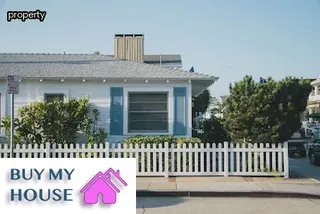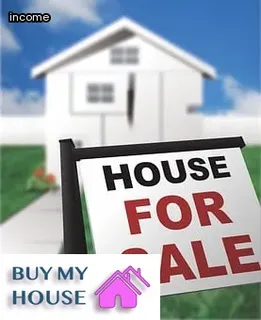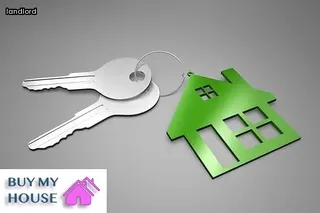Making a decision about whether to rent or sell your house is an important one that will have serious financial implications. Before making this decision, it is imperative to assess your financial situation in order to determine what the best option might be.
Consider how long you plan on living in the house, how much money you are willing to spend on repairs and renovations, and how long you want to wait before you receive a return on your investment. Evaluate how much money you can make by renting or selling, as well as how much of a risk you are willing to take with each option.
Additionally, inquire into any tax consequences that may arise from renting or selling your home, and look into any potential benefits from capital gains tax that could potentially result from selling. Ultimately, assessing your financial situation carefully before deciding whether to rent or sell is key for ensuring that whichever choice you make is the right one for your future.

When it comes to deciding whether to sell or rent your house, understanding current market trends is an essential part of the decision-making process. Home prices and rental costs can be influenced by a variety of factors, including economic conditions, job market stability, population growth, and the local real estate supply and demand balance.
To make an informed decision, homeowners should evaluate their financial goals and analyze current housing trends in their area. For instance, if home values have been steadily increasing in recent months or years, selling may be the most advantageous option for property owners looking to maximize their return on investment.
On the other hand, if there are not many buyers in the area but plenty of potential renters, renting out your home may provide more consistent income over time. Ultimately, weighing both short-term financial gains and long-term earning potential will help you decide whether selling or renting is best for your situation.
When it comes to deciding whether to rent or sell your house, a cost-benefit analysis is an important step. It's important to consider the financial implications and weigh the pros and cons of each option.
When selling a house, there are costs associated with repairs, staging, marketing, closing fees, and taxes. On the other hand, renting requires less upfront cost but may require regular upkeep and maintenance expenses.
Additionally, when deciding between selling or renting your house you'll also want to factor in the amount of income you can expect to receive in either situation. For example, if you plan on selling your house you'll want to take into account current market conditions such as supply and demand as well as local real estate trends that could influence the sale price.
You'll also need to think about how long it will take before your home sells and how much money you'll be able to make from it. If you're thinking about renting out your property instead, you should consider how much rent you can charge for the space and how often vacancies might occur over time.
Finally, it's important to remember that people who rent out their homes are typically responsible for collecting payments from tenants as well as managing all maintenance needs.

In a recession, it is important to consider the pros and cons of selling versus renting your house. Selling can provide a quick influx of cash and the opportunity to move on to new opportunities, but there may be financial implications due to the lower value of houses in a recessionary market.
On the other hand, renting your house could bring in steady income while keeping your options open for potential appreciation if the market turns around. Additionally, if you are not ready to commit to a long-term sale or rental agreement, there are short-term rental solutions such as Airbnb that may be an option worth exploring.
It is important to carefully weigh these considerations when deciding whether selling or renting during a recession is right for you.
Selling a house and renting it out both have their advantages and disadvantages. Selling allows the owner to take advantage of market conditions, potentially making a larger profit.
On the other hand, if the market is slow, they may end up taking a loss on their home. Renting can be appealing as it allows owners to continue collecting payments over time while avoiding costly maintenance fees associated with homeownership.
However, renters may not always abide by the terms of their lease, leaving the owner at risk for financial losses or legal liability. Additionally, renting can present challenges when it comes to finding quality tenants who will stay long-term and pay rent in full and on time.
Ultimately, it's important to research the local real estate market before deciding whether selling or renting is right for you.

When it comes to deciding whether to sell or rent your house, there are advantages and disadvantages of selling that you should consider. On the plus side, you can gain a large return on your investment when you sell your home, as the sale price will likely exceed what you paid for the property.
Selling a home can also provide you with more liquid assets than renting does since you will receive a lump sum payment for the sale rather than periodic payments. Furthermore, once your home is sold, you no longer have to worry about upkeep or repairs; these tasks fall on the new owner.
However, selling could also come with drawbacks; depending on the state of the housing market in your area, it may take months or even years before you find a buyer who is willing to pay an acceptable price for your home. Additionally, depending on how much money you owe on your mortgage and other loans associated with the property, after all fees and taxes are taken into account, there may not be much left over from the sale proceeds.
When considering the option of renting out your home, there are a few advantages and disadvantages you should be aware of. One advantage is that you can often make more money from renting than selling.
Additionally, renting allows you to keep your home if you need to move away for a season or due to a job change. It also provides an opportunity to test out other neighborhoods before making the commitment to buy.
On the downside, being a landlord may bring added stress and come with additional costs such as property taxes, insurance, and maintenance fees. There is also the potential for tenants not paying rent or causing damage to your property which can be quite costly.
Furthermore, when renting you may miss out on certain tax deductions offered by ownership such as mortgage interest deduction or capital gains exemption. While there are pros and cons associated with both selling and renting your home, it’s important to weigh all factors before making a decision.

Deciding whether to sell or rent your house is a big decision, and it's important to consider all of the pros and cons in order to maximize your return on investment. Selling may be preferred if you want to move quickly and don't want the responsibilities that come with being a landlord.
However, renting can provide ongoing passive income which may be more beneficial in the long run. It's essential to understand how local market conditions can affect the value of your home, as well as any potential tax implications for each option.
Researching vacancy rates and rental prices in your area can help you determine how much you might expect to earn from renting. Additionally, understanding the costs associated with selling such as real estate fees and closing costs will allow you to calculate an accurate ROI estimate for both options.
Taking all these factors into account will enable you to make an informed decision that is best suited for your unique situation.
When it comes to preparing a home for sale or rental agreement, there are a few key tips to keep in mind. First, it’s important to assess the condition of the house and determine if any repairs need to be made.
This may include patching up holes in walls, replacing broken windows or doors, and making sure all appliances are in working order. Additionally, updating fixtures such as lighting or plumbing can help make the property more attractive to potential buyers or tenants.
It is also important that the house is properly cleaned and staged so that it looks presentable when prospective buyers or renters come by to view it. Finally, setting realistic expectations for what you wish to get out of the sale or rental agreement is essential; this includes deciding on a reasonable asking price and understanding how long it could take to find a buyer or tenant.
By following these simple tips, you can ensure that your home is properly prepared for sale or rental agreement.

When deciding whether to sell or rent your house, one of the key considerations is how to maximize potential tax benefits. When selling a property, capital gains taxes may apply and can be reduced if you have lived in the house for at least two of the five years before selling it.
You can also take advantage of Internal Revenue Service (IRS) exemptions to reduce your taxable gain, such as adjusting for inflation or deducting certain expenses incurred during the sale. On the other hand, when renting out a property you may be eligible for deductions on things like maintenance and repair costs, mortgage interest payments and more.
Additionally, landlords are allowed to depreciate their rental properties over 27.5 years which can help reduce their overall taxable income.
However, if you choose to rent out your home rather than sell it there are some important points to consider such as finding reliable tenants who will pay their rent on time as well as adequately maintain your property. Ultimately, carefully evaluating all available tax benefits and understanding both advantages and disadvantages will help you make an informed decision about whether to sell or rent your house.
If you are in a situation where neither selling nor renting your house is an optimal option, there are still some alternative strategies to consider. One potential path is to explore the idea of a lease-option agreement.
This type of contract allows you to maintain ownership of the property while leasing it out to tenants with their rent payments covering the mortgage and other expenses. Another strategy could be to look into taking out a home equity loan, which enables you to borrow against the equity in your home while keeping it in your possession.
Additionally, you can also look into becoming a landlord yourself by finding tenants and managing the rental property on a daily basis, giving you more control over what happens with the property. There are advantages and disadvantages associated with each of these strategies; understanding them will help you decide which path would be best for your individual needs.

When considering the selling or renting of a property, it is important to understand the time frame needed to earn profits from the sale or rental. For those looking to sell their house, depending on the market and other factors such as location, condition of the property and demand for that particular area, it can take anywhere from a few weeks up to a few months before an offer is accepted.
To maximize profit potential from a sale, homeowners need to have patience and ensure they are getting the best possible price for their home. When it comes to renting out a property, there will be ongoing costs associated with maintenance and repairs as well as dealing with tenants which can quickly add up over time.
Additionally, landlords should factor in vacancy periods when calculating their expected rental income. This means that instead of earning an immediate profit from renting out their home, they may need to wait several months before seeing a return on their investment.
When it comes to selling or renting real estate, there are a few risk factors that you should consider. One of the main risks with selling is the fluctuating market - if the market is down, your property may not be worth what you expect.
When renting out your property, you need to make sure that you have a secure tenant and guarantee that rent will be paid on time each month - otherwise you can face serious financial losses. You should also factor in any repair costs associated with both selling and renting as this could significantly reduce the value of your property and put you at risk of losing money.
Furthermore, it's important to research the local area to assess its rental prospects, as well as potential buyers for when the time comes to sell up. Lastly, ensure that you are aware of all legal requirements before making a decision - this can help to mitigate any unexpected costs or liabilities further down the line.

When making decisions about property ownership, it is essential to understand the legal considerations involved in either selling or renting your house. Different laws and regulations may apply depending on which route you decide to go, and it is important to be aware of these before entering into any agreement.
For example, if you choose to rent out your property, you will need to familiarize yourself with landlord-tenant laws. This includes outlining the terms of the lease agreement, such as details regarding tenant obligations, the length of tenancy and any rent increases.
Additionally, it is important to know that certain maintenance responsibilities must be met in order for a landlord to remain compliant with local housing codes. On the other hand, if you decide to sell your home, you should become familiar with any applicable real estate contract law as well as any state or local disclosure requirements related to things like lead paint or mold contamination.
Finally, whether renting or selling your house there are likely tax implications you should consider when making this decision. Understanding these legal considerations can help ensure that no matter what route you choose for transitioning from owner-occupier to landlord or seller, all parties involved are protected by the law.
When deciding whether to sell or rent a house, it's important to consider both short-term and long-term goals. Selling a house can provide a one-time cash infusion, the amount of which will depend on the location and condition of the home.
On the other hand, renting a house can provide steady income over time. However, there are also additional costs associated with being a landlord that should be taken into account.
For example, repairs and maintenance might have to be addressed as well as property taxes and insurance premiums. Depending on the rental agreement, these costs may need to be covered by the landlord rather than absorbed by tenants.
Additionally, if you plan to sell your house down the road, you'll need to factor in any appreciation or depreciation in housing values over that time period. Ultimately, it is important to take all factors into consideration when weighing options for selling vs renting your home in order to achieve desired objectives in both the short-term and long-term.

When it comes to deciding whether to sell or rent your home, location and desirability should be key factors. The desirability of a property can affect the value of the sale price or the amount that can be charged in rent.
If a home is in an area with high demand, then selling may bring in more revenue than renting. However, if the market is slow and rental prices are higher, then renting might be the better option.
Location also plays an important role; for example, homes close to public transportation networks may attract more tenants willing to pay higher rents than those further away from these amenities. Additionally, if a house is located in an area with high demand for sales due to its proximity to schools, parks and shops, then selling may be the wiser choice.
Therefore, researching local real estate trends and assessing each property's unique features is essential when determining whether to sell or rent your home.
Whether you are selling or renting your house, navigating neighborhood regulations is an important factor to consider. Depending on the area, these regulations can vary widely and can have a significant impact on the process of selling or renting your home.
Before making any decisions, it is essential to research local zoning laws, as well as any applicable homeowner association rules that may apply. Additionally, you should be aware of any restrictions regarding rental periods or tenant screening processes in order to ensure compliance with all relevant regulations.
Understanding the implications of these various regulations can help you make an informed decision about which option – selling or renting – is best for you and your property.

Once the decision has been made to either sell or rent a home, it's important to create a plan for moving forward. It is essential to consider the potential benefits and drawbacks of each option before making any financial commitments.
When selling a home, it's important to understand the costs associated with closing such as agent fees and taxes that may reduce the overall sale price. Additionally, there are certain repairs or renovations that might be necessary to make the property more marketable and attract buyers.
On the other hand, when renting a house there may be ongoing maintenance costs and ongoing expenses related to finding tenants and managing lease agreements. In either case, understanding what is required in terms of paperwork and legal documents will help ensure that everything is done correctly.
Having an accurate timeline for moving out and understanding how long it will take to complete the transition will also help reduce stress during this time of change.
When it comes to deciding between selling or renting out your house, there are many pros and cons to consider. Selling your home provides the opportunity for a large payout of cash, but rental income can provide more consistent and longer-term returns.
On the downside, selling requires a lot more upfront work in terms of repairs and cleaning, while renting requires ongoing maintenance costs and possibly dealing with tenants. Both options also come with taxes, so it is important to do research on what will be owed depending on the chosen route.
Selling may require a realtor's assistance in order to maximize profits, while renting can be done independently or through a property management company if desired. Ultimately, it will depend on your individual needs and financial goals as to which option is best for you.

When it comes to exploring the pros and cons of selling versus renting your house, one of the main questions that you should consider is how much profit you should make on a rental property. To help answer this question, you'll need to take into account several aspects including potential long-term capital appreciation, monthly cash flow from tenants, tax benefits associated with rental income, and other financial considerations.
Generally speaking, it's recommended to aim for a net annual return of at least 8% on your rental property after taking into account all expenses such as taxes, insurance, repairs and maintenance costs. If you are able to generate a higher return than 8%, then that would be even better.
It is also important to factor in inflation when looking at potential returns over the long-term so that your investment can keep up with rising costs. By evaluating these factors carefully before deciding whether to sell or rent out your house, you can ensure that you make the best decision possible for both short-term and long-term profits.
Renting out a house can be a great way to make some extra income and is increasingly becoming an attractive option for those looking to make money from their home. While there are certainly advantages to renting out a house, it is important to explore both the pros and cons before deciding if investing in rental property is the right choice for you.
On the one hand, renting out a property can provide regular income that may increase over time due to rent increases. Additionally, tenants may take care of minor repairs or upgrades that would otherwise be paid for by the landlord.
Conversely, there are also significant risks associated with renting out a house. Tenants may not always pay rent on time, leaving landlords with unpaid expenses.
Furthermore, tenants may cause damage to the property that requires costly repairs or renovations. Ultimately, when deciding whether or not to rent out a house it’s important to consider both potential rewards and risks involved.
Renting out your home can provide many benefits, such as the ability to earn a consistent income and diversify your investments. Renting also gives you more control in terms of who lives in your property, as well as when and how much rent is charged.
Additionally, renting provides an opportunity for tax advantages from rental income deductions and the potential to offset other expenses such as maintenance costs. Moreover, renting out your home can give you the flexibility to use it yourself from time to time or turn it into a vacation rental for extra income if you decide to travel for extended periods.
Finally, renting can be a great way to test out different markets and neighborhoods before making a long-term commitment.